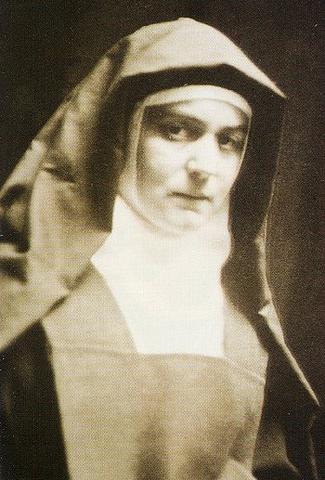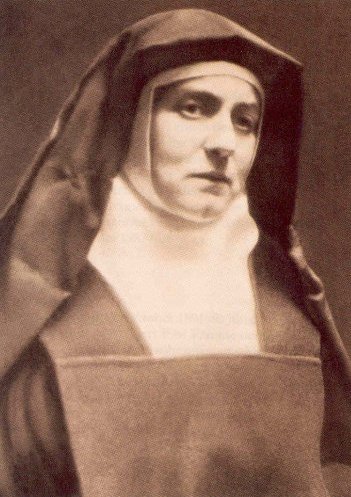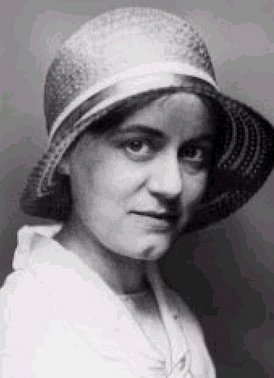
When I was in high school I camp up with what I thought was a very clever response to a homework assignment, a project, or some other effort of mine upon it’s completion.
“Perfect enough.”
What that meant was, “It is sufficient for it’s purpose.” That didn’t mean it was complete; otherwise it would indeed be perfect. It meant that I was done putting effort into it and that I knew it was good enough for the standards of the one who would evaluate or judge it. I did very well in school actually, but the standards of public schools weren’t all that hard for me to reach.
That attitude carried on into my college years, though I certainly had to work a little harder, though not much. I was an infamous procrastinator but for the most part achieved good grades; once I put off a paper for nearly four months, researched it the week it was due while simultaneously putting together a presentation, typed up the paper the night before the due date, and was given the only A in the class the whole semester. I thought it was because I was “that good.” Now I know better; that was God’s mercy.
Novitiate changed all of that. Novitiate showed me the smugness of that mindset, that “good enough” approach to everything. Novitiate showed me that, ultimately, my every single deed–as well as the spirit in which I carried it out–would one day be evaluated not merely by a boss, a teacher or some other figure whose job it was to assign me a task, evaluate me and then award/punish me according to the results and their proximity to the standards set for success or failure. No, the one who would evaluate me would be the very one who created me.
After two years of novitiate and coming to love Christ and desire to serve Him in an entirely different way, I was missioned to St. Louis University to study philosophy for three years. I wasn’t going to college because “that’s what you do after high school;” I was going to college because Jesus was sending me there to learn. “Perfect enough” was no longer an option; now it was, “Yes, Lord, because I love you.” I poured my whole heart into my studies, Christ asking me to take some of the most challenging courses of my life, putting me under the instruction of some of the most challenging professors I have ever had. By His grace I graduated summa cum laude; I did fairly well in my first bout of college, but I did not expect this at all. I checked my grades only to see how well I was honoring Christ in my work; I never really kept track of my GPA or anything. So when I met with my advisor to see if I was all lined up to graduate he made some calculations and such and said, “Well, looks like you will graduate summa cum laude.” “…….is that good?” “Yes, Jacob; that means ‘highest honors.’” “Oh…well, good. Thank you.”
I don’t offer that to brag but only to demonstrate what can happen when your motivation for doing anything–work, study, relationships, etc.–is reordered to love. Love of Christ, love of your family, friend, spouse. And our motivation can be reordered to loving the wrong things, too–love of pleasure, food, image, honor, self, a person, a place, a thing, etc..
You see, we little human beings, so often lamenting how generic and common we are, how talentless, unattractive, unlucky, poor, etc. we are, well, we are so often then totally wrong. We couldn’t be more wrong. Jesus said, “If you then, who are wicked, know how to give good gifts to your children, how much more will your heavenly Father give good things to those who ask him?” (Matthew 7:11) So what did the perfect Father give to His perfect Son?
When praying for His followers He said, “Father, they are your gift to me.” (John 17:24)
Think about that, dear ones. You are a gift given to the perfect Son of God by His perfect Father. What about us could possibly matter more than that reality? Does it matter that I don’t have the good looks of this or that celebrity? As much money as this person? Talent like that guy on the TV? No; they are gifts given to the same Christ by the same Father.
You are a treasure; Christ died to save those who were His.
Now, we can be pretty awful people, so much so that it may seem that if we are gifts from the Father to the Son, we are “white elephants.” Whether or not that is the case I couldn’t say, but even if we are we were given to Christ out of the Father’s love, and Christ gave His life to spare ours. I know I wouldn’t die for any gag-gift I’ve ever received.
So where does that leave us? What do we do with that? Nothing. Everything.
You see we’ve looked at the Father and the Son; in the Old Covenant God made Himself known to His people and He stood above them. From Heaven He showered down bread, defeated enemies, worked all manner of miracles for His people. In the New Covenant God made Himself known to His people by becoming one of them, and He dwelt among us. From His own Body He gives us our Food and Drink, defeated our greatest enemy, Death, worked miracles and spoke such words that they echo in the hearts of billions and shape history still to this day. He became one of us to gather up all His gifts into one gift: the Church, His Bride. On the Cross, right before He died, He said, “It is finished.” (John 19:30) In the ancient Latin translation it was worded, “Consummatum est:” It is consummated. Granted, it is an interesting choice of word for the original Greek (tetelestai; literally “it has been accomplished”) but I think it more fully conveys the reality of that moment.
Just like in a marriage, the consummation–as any married couple can remember–is hardly the accomplishment or finishing moment of a marriage; it is the very beginning.
What began on the Cross? Christ is making a return of all humanity to His Father; you see now why, so soon after His rising, Christ makes way for the Holy Spirit.
The Holy Spirit, as some theologians have tried to explain Him, is the perfect love shared between the Father and the Son. The Father loves the Son perfectly, the Son of course returns that love; that Love is perfect, as God is perfect. That Love IS God; God IS Love. When we stop to ponder the reality that the Father gave us to His Son out of Love, what do you think the Son desires to do in return?
Jesus desires to give us back.
But love, real love, perfect love isn’t about to pull the classic “re-gift.” Oh no; perfect love desires to give an even greater gift. Think back to the parable of the talents; who was the wicked servant? The one who gave back precisely what he’d been given in the first place. Jesus is the perfect servant, the perfect everything; He’s going to give back, and then some.
What this means for us, then, is that by accepting the reality of our being a gift from the Father to the Son–being a Christian–we agree to participate some how in that great return of all mankind to the Father. Christ’s whole salvific work isn’t so much His heroic and sacrificial effort to restore us to how glorious we were when God first created Adam and Eve, but He is working to glorify us and to make us more like Himself. Can you imagine what a gift it would be to the Father to present Him with a whole humanity that bore a very real, total–not merely superficial or Luther’s “blanket of snow over a manure pile”–likeness to that One Whom He loves most of all?
Being a Christian is absolutely not about being “perfect enough;” it isn’t even about being perfect. Being a Christian is about being perfected. By the power of the Holy Spirit, in the matrix of the Church, remade in Baptism, new-forged in Confirmation, fed and transformed in the Eucharist, purified one drop of dross at a time through Reconciliation, patched up and strengthened in the Anointing of the Sick, and made a coworker in all of this through the Sacrament of Matrimony or Holy Orders Christ is perfecting the whole of humanity, making each of us more and more like Himself, uniting us intimately with Him, to the point that we aren’t merely beneath Him (Old Covenant), beside Him (Incarnation) or having Him dwelling within us (the Holy Spirit), but rather we are living in divine union with the whole Trinity: Father, Son and Holy Spirit. This is the whole goal of Christian life: to be made like Him. (1 John 3:1-3)
Christ is not about to settle for “perfect enough” while He is laboring constantly to purify us and make us whole, lacking in nothing (the true meaning of the word “perfect”); after all, nothing unclean or impure shall enter into the presence of God in heaven. (Revelation 21:27) Jesus wants with His whole heart to present each and every one of us as a gift to the Father, given in the same Spirit of Love that He first received us.
I encourage all of us to examine our Christian life and to pray constantly for guidance in how we can, more and more, surrender to the purifying flames, hammers and chisels, sandpaper and every other means by which the Divine Carpenter is perfecting us in preparation for that day when He presents us before the Father. Will we be a gift for which the Son is glorified (and thus so are we!) or will settle for “perfect enough” and hope we’ll slide by with a B+?
So often this work involves the sacrificing and giving up of many aspects of our life. For me it was marriage and family, possession, self-determination and a few other major things. For others the sacrifices are different, and regardless of what they are they are fuel for the purifying flame, a whetstone to sharpen the carving knife or chisel, grit for the sanding. Our sacrifices, those things which Christ asks us to give Him and by the Holy Spirit, inspiring us with love, we do, allow Christ to shape us and perfect us.
As anyone who has done sculpting work can tell you, the easiest part is knocking off the big chunks. While there is a huge commitment in, say, taking vows of perpetual poverty, chastity and obedience, those are things that one can pretty much make a final decision on. However the hardest part of sculpting is the finer work, the sanding and such, the removal of any final impurities before the work is finally perfect. So often the small sacrifices–treating a certain nemesis with love, remaining chaste, saving money, putting aside your plans for the afternoon to help an annoying neighbor, an attachment to junk food, constant music, and a million other little things–are the hardest not because they are hard to give up, but rather because they are so easy to take back.
Just think about Lent. Giving up TV? Piece of cake: unplug the thing and don’t go near it for forty days. Giving up chocolate? “Well, I had a hard day at work; I deserve one, little piece…”
Or the rest of the year. Waiting until marriage? Manageable; set firm boundaries, date responsibly, etc. Giving up pornography? “Well, I’m not hurting anyone.”
Christ desires us to be perfect; He desires us to let Him perfect us. That means trusting Him, giving Him everything He asks of us, cooperating in His work in us and assisting Him in His work in others, not merely by not getting in His way mind you; after all, He said DO unto others as you would have them do unto you; it is the other religions that say, “Do NOT do unto others…”
Because of His love for the Father and His love for us, Jesus refuses to settle for “perfect enough.”
What about you?
What are some ways Christ is asking something of you in order to make you more perfect? What is standing in your way and what could help you to trust Him? How are you cooperating with Christ in His work of perfecting you and others around you? How can your church and your fellow Christians help?


















































 You see the great curved colonnades? They are meant to symbolize the “arms” of the Church, which embrace all people and all nations.
You see the great curved colonnades? They are meant to symbolize the “arms” of the Church, which embrace all people and all nations.

























Recent Comments